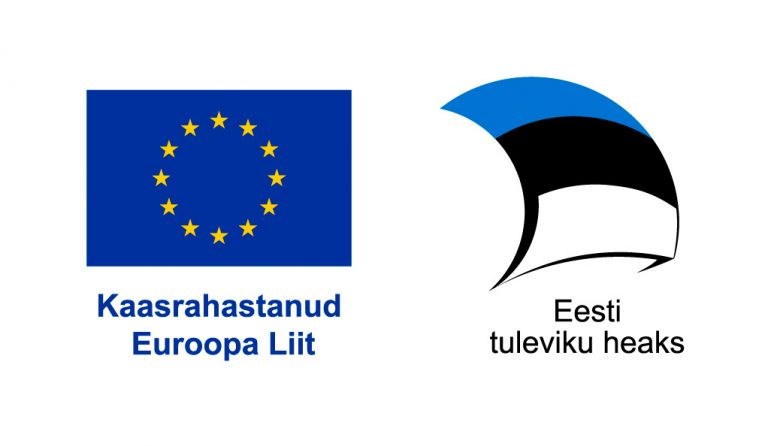General education schools development program
In 2022, the Estonian Quality Agency for Education initiated the activity "Promotion of Evidence-Based Quality Management Supporting Learner Development in General Education". A significant part of this initiative involves developing and implementing development programs that provide personalized approaches for general education schools.
Who conducts the development programs?
The development programs (from now on referred to as programs) are developed and carried out by the University of Tartu and Tallinn University. These universities are assisted by mentors in the field of education who help integrate theory and practical experience into a cohesive whole. The Estonian Education Quality Agency supports the implementation of the programs. The European Union and the Ministry of Education and Research provide funding.
The program has been initiated by the Estonian Quality Agency for Education. Development support opportunities are offered to at least 50 general education schools during the period. Also, familiarize yourself with the summary of the schools' development program for the 2021–2022 period.
The cornerstone of the leadership project was Tallinn University's Future School program, which was adapted and modified according to the project's objectives and the participating schools.


Mentors of Tallinn University
| Tiina Tiit | Head of Studies of Pelgulinna Gymnasium |
| Hiie Asser | Director of Tartu Annelinna Gymnasium |
| Ene Tannberg | Director of Miina Härma Gymniasum |
| Margo Sootla | Director of Paide Gymnasium |
| Sigrid Melts | Deputy Director of the European School of Tallinn |
| Anu Köidam | Principal of Ilmatsalu Basic School |
| Sirje Kautsaar | Director of Rae Gymnasium |
| Indrek Lilleväli | Director of Tallinn Pelgulinna State Gymnasium |
| Mari Palu | Head of Studies of Rae Gymnasium |
| Aule Kink | Director of Häädemeeste Secondary School |
| Maria Kurisoo | Head of Studies of Tallinn Tõnismäe State Gymnasium |
Who participate in the development programs and how did the schools get selected?
The development programs primarily invite those general education schools where indicators related to students' psychological basic needs (motivation, engagement, competence), based on national satisfaction surveys, are significantly lower than the Estonian average.
The program is designed to involve a team formed for this purpose, typically consisting of members selected from both school management and teachers.
It is essential that the knowledge and experiences eventually reach all members of the school community and that the implementation methods are developed during the programs. If necessary, a representative of the school's governing body may also participate in the program, but the specifics of their involvement are agreed upon separately with each school.
What does the school learn as a result of the development programs?
Participation in the development programs primarily prepares schools to:
- manage processes and changes based on evidence;
- create a learner-centered school culture;
- promote quality management practices, including improving internal assessment and conducting self-analyses.
Development programs require active and continuous participation. Each educational institution agrees with the team and the university on the most important goals to pursue and the activities that lead to these goals. The focus of the goals should be directed towards supporting learner needs.
How long and time-consuming are the programs?
The program can vary for school teams, but it should be considered up to three years long. Three years precisely because previous experience and research have shown that it is difficult to bring about lasting changes in educational institutions in a shorter period.
The program requires participation in seminars, communication with mentors, and finding time for independent assignments. Therefore, participation should be carefully planned to fit into each team member's schedule participating in the program.
What do the developers of the development programs expect from schools?
The development program is not designed to assess participating schools or scrutinize past actions but to share learning and experiences.
The program provides an opportunity, with support from the university, to take time to analyze indicators relevant to oneself, experiment with different ways of working as a team and learning from each other, and collaboratively implement important development activities for the school. The goal is that the current learning efforts will make teaching and learning processes smoother and more effective in the future.
For the program to succeed, it's crucial to have open and honest discussions within the school and with trainers and mentors. It's necessary to review all available data, analyses, and other relevant background information with universities and mentors to identify the most pressing challenge.
Internally, within the school, it's essential to communicate openly with all members from the outset and collectively discuss why we want this and what participating in development programs can offer us. Schools should participate in the program when the team feels that:
- continuous learning from each other and honest self-reflection are necessary for the overall health of the educational institution;
- participating in the program is an opportunity to analyze their activities better and grow together as a team;
- they are ready to commit to the development program for an extended period.
Schools participating in the program
|
Pilot project
|
2022/24
|
1 | Holstre School |
| 2 | Kärdla School | ||
| 3 | Käru Basic School | ||
| 4 | Paistu School | ||
| 5 | Vara Basic School | ||
|
I
|
2023/25
|
6 | Tallinn Kuristiku Gymnasium |
| 7 | Tallinn Mahtra Basic School | ||
| 8 | Merivälja School | ||
| 9 | Viimsi School | ||
| 10 | Tallinn Coeducational Gymnasium | ||
|
II
|
2024/26
|
11 | Hagudi Basic School |
| 12 | Martna School | ||
| 13 | Nissi Basic School | ||
| 14 | Palivere Basic School | ||
| 15 | Tõstamaa School |
